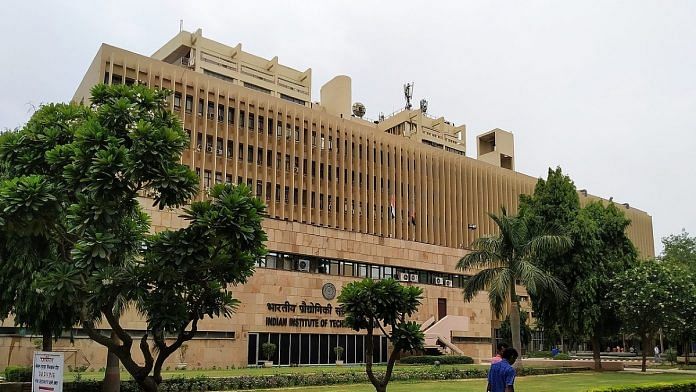New Delhi: The science stream in India remains dominated by privileged caste (General Category) groups, according to an article by journalist Ankur Paliwal in Nature, a leading science journal. Published Thursday, it finds that students and professors from the Adivasi and Dalit communities are very poorly represented at elite institutions including the Indian Institutes of Technology (IITs) and the Indian Institute of Science (IISc).
Data collected through RTIs and other official sources show that the reservations for faculty positions — 7.5 per cent for Scheduled Tribes and 15 per cent for Dalits — are not being filled at these prestigious institutes, according to the report. This is a part of an ongoing series examining data on ethnic or racial diversity in science in different countries.
The report finds that Adivasis and Dalits are under-represented in science courses right from the undergraduate level. Among undergraduates, Adivasis make up less than 5 per cent of the STEM (Science, Technology, Engineering and Mathematics) classes. Dalit representation also follows similar trends.
Overall, there is more representation in the arts stream. “That is not because arts courses are more popular, but because teachers and mentors specialising in science are rare in the rural high schools attended by these students, especially Adivasis,” Sonajharia Minz, a computer scientist and vice-chancellor of Sido Kanhu Murmu University in Dumka, was quoted as saying.
A similar situation is apparent for master’s-level STEM courses as well, with most institutes not filling up their SC and ST seats.
The representation of these communities dips further at the PhD level, especially at the more prestigious institutions. Data for PhD programmes in 2020 at five high-ranked IITs –— Delhi, Bombay, Madras, Kanpur, and Kharagpur — show an average of 10 per cent representation for Dalits and 2 per cent for Adivasis.
This is slightly lower than the average for five mid-ranking IITs — Dhanbad, Patna, Guwahati, Ropar, and Goa.
The numbers for PhD students and faculty members from the Other Backward Classes (OBC) at the top five IITs also fall below the levels mandated by reservation policies, according to the report.
India’s top-ranked university, the Indian Institute of Science (IISc) in Bengaluru, also fares poorly.
Researchers quoted in the report blame the institutes’ heads for not following reservation policies, and the government for letting them off the hook.
Also Read: Yale, Oxford in India is Modi govt’s way to wedge divide, take OBCs, Dalits back to dark past
Representation in faculty
At the top five IITs and the IISc, 98 per cent of professors and more than 90 per cent of assistant or associate professors are from privileged castes, according to the report.
At the Tata Institute of Fundamental Research (TIFR) — which has been designated an ‘Institution of Excellence’ exempt from following reservation policies — all professors are from the privileged castes.
Meanwhile, data on the Department of Science and Technology’s INSPIRE Faculty Fellowships between 2016 and 2020 show that 80 per cent of recipients were from privileged castes, while just 6 per cent were from Scheduled Castes and less than 1 per cent from Scheduled Tribes.
While acknowledging the gulf between the different categories, Neela Nataraj, a mathematician and dean of faculty affairs at IIT Bombay in Mumbai, was quoted as saying that “equating under-representation with discrimination is incorrect. There is no discrimination.”
She said the institute was trying to improve representation through recruitment, and by encouraging more students from under-represented communities to start PhDs.
On the other hand, Kirpa Ram, an assistant professor of environmental sciences at Banaras Hindu University in Varanasi, implied that the caste prejudices of faculty members play a role in discrimination. Ram, who is from an OBC community, said that even when students from marginalised communities start PhDs, it is “quite common” for privileged-caste professors not to supervise them.
Researchers quoted in the article proposed a few measures to combat the issue, including a higher standard of accountability for institutional heads, public disclosing of diversity data, and support systems from the school level.
(Edited by Theres Sudeep)
Also Read: More women students now study STEM courses in IITs, NITs & other universities, shows govt data



